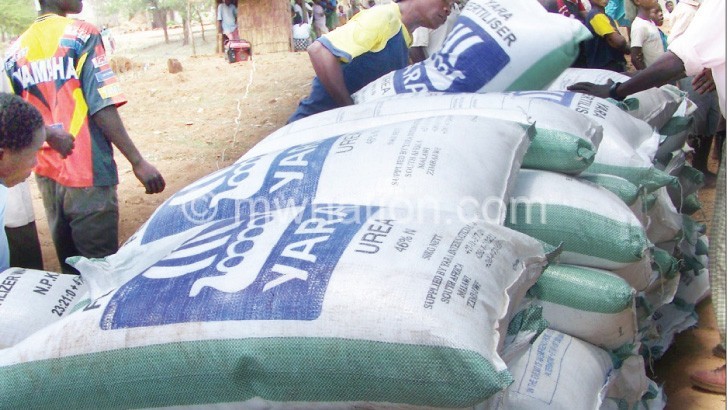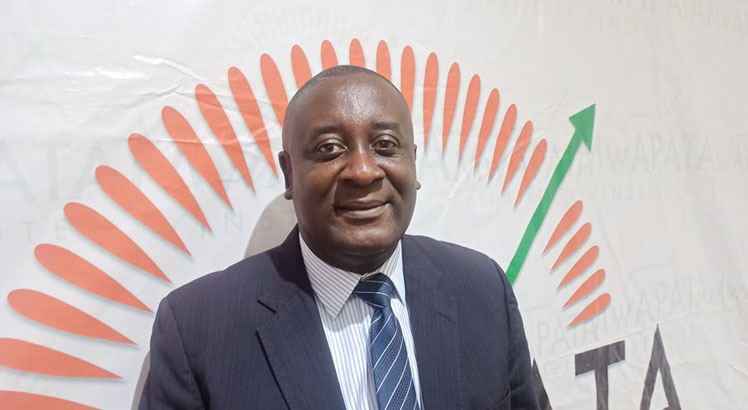Comesa calls for harmonised agribusiness policy
On December 7, the Common Market for East and Southern Africa (Comesa) urged member States to implement a harmonised regional policy to help facilitate fertiliser agribusiness in Sub-Saharan Africa.
The regional bloc made the call in Zambia during the Regional Public-Private Dialogue on the Future of Fertilisers and Agro-Inputs in Africa held in Lusaka. organised by the African Fertiliser Agribusiness Partnership in collaboration with Comesa’s specialised agency, the Alliance for Commodity Trade in Eastern and Southern Africa (Actesa).
The dialogue was intended to help delegates from the public and private sectors to understand major policy regulatory and business environment constraints affecting private sector operations and government priorities for the sector.
According to a paper presented at the event, Africa currently uses 22.5 kilogrammes of fertiliser per hectare, 697.78 percentage points lower than Europe which uses 157 kilogrammes per hectare of land.
Farmer’s Review Africa records that accessibility of fertiliser in the 21 Comesa member States remains at 15 percent, a development which has negatively affected the production of food, mostly maize and cereals.
Cereal yields in the Comesa region have slumped to an average of 1.5 metric tonnes, a paltry 30 percent of the global average of five metric tonnes per hectare.

In a statement quoted by www.comesa.int, Comesa senior fisheries and livestock officer Yoseph Mamo said “high costs of inputs to produce fertilisers, low supply and a lack of infrastructure caused the low usage ”.
He said a harmonised regional policy “will help facilitate fertiliser agriculture business, having a joint procurement system for agro-inputs for regional member states and the development of a viable industry through joint industrial parks” to capitalise on the growing demand for nitrogen demand in Africa.
Said Mamo: “This [ growing demand for nitrogen fertilisers which is rising faster than other regions] shows that there is a huge gap to be used as an opportunity to create jobs and businesses.”
The call comes at a time Africa is reeling from an unprecedented rise in fertiliser prices induced by supply disruptions stemming from the Covid-19 pandemic and the Russia-Ukraine war. The war has deprived the international market of fertiliser produced in Russia, Ukraine and Belarus.
The three countries together produced about 10 percent of the world’s nitrogen and phosphorus fertilisers, as well as 35 percent of the world’s potassium before the war, according to statistics from the United Nations’ Food and Agriculture Organisation.
The shortage of fertiliser on the global market threatens to undermine farmers’ capacity to grow crops for the 2022/23 growing season. The disruption to the growing season will likely push up consumer prices, especially in developing countries with agrarian economies.
In its analysis published in the October special feature box in the World Economic Outlook, the International Monetary Fund (IMF) said “supply shocks dominate fluctuations in cereal prices”.
Reads part of the feature: “A typical [negative] global harvest shock induces a 16 percent rise in prices in the same quarter, with the increase peaking at 23 percent after one quarter.
“Prices of fertilisers, in contrast, have a delayed but important effect. A 10 percent rise in fertiliser prices [because of a natural gas supply shock] has no immediate effects but leads to a seven percent rise in cereal prices after one quarter.”
In their blog post on www.imf.org, the fund’s economic analysts Christian Bogmans, Andrea Pescatori and Ervin Prifti further said “a one percent drop in global harvests raises food commodity prices by 8.5 percent while a similar increase in fertiliser prices boosts food commodity prices by 0.45 percent”.
Local analysts say Malawi stands to benefit
Considering the negative impact that the low use of fertiliser has on agricultural productivity and the pass-through to global and local prices, there is strong reason to believe that boosting fertiliser use could solve several economic challenges in agrarian economies like Malawi.
In his reaction to the call for a harmonised regional policy on fertiliser agri-business, Mwapata Institute executive director William Chadza said Malawi can use the leverage obtained from working as part of a bloc to buy inputs in bulk and, by extension, capitalise on the economies of scale.

He said: “If countries want to pursue manufacturing of inorganic fertilisers, it would be more viable at a regional level than at a national level because countries like Malawi may not have the capacity to directly import some inputs so they could leverage that regional dimension in terms of potential manufacturing plants.
“It could also facilitate trade for other input supplies such as seeds because it would complement the existing regional policy positions on seed trade harmonisation and help bring together commodities from the national market and exploit opportunities such as the Continental Free Trade Area.”
In a separate interview, Lilongwe University of Agriculture and Natural Resources agricultural economist Horace Phiri said the initiative “is welcome and well-intended”, but stressed that countries should ensure that local efforts to boost fertiliser use do not undermine environmental sustainability.
He said: “We also have to be cautious that as we boost fertiliser usage, we do not damage the environment through the excessive use of fertiliser. We need to monitor how fertilisers are made. We should not turn the environment toxic because we want to grow crops.

“Some fertilisers flow into streams, rivers and groundwater sources. With the bulk of the Malawian population depending on water from these sources, we need to watch what we do.”
Concurring with Phiri, Chadza said the Comesa member States, including Malawi, will have to incorporate both inorganic and organic fertiliser in their drive to boost agriculture production as well as protect their environments and natural resources.
He said: “We also need to look at intensifying soil health improvement technologies, such as conservation agriculture, in cropping, ensuring that farmers do not burn crop residues and incorporating crop residues in the agronomic practices which we have.
“This will improve the soil health to make sure that the inorganic fertiliser applied on farms is giving positive returns in the medium and the long term so that we can have an improvement in terms of productivity.”
The analysts have also urged local authorities to implement policies that will ensure Malawi secures its domestic industry so that regional policies do not crowd out or place the country at a competitive disadvantage.
Phiri cautioned that if not managed correctly, the call for a harmonised policy on fertiliser agribusiness might end up benefiting the more advanced economies in the regional bloc at the expense of smaller economies like Malawi.
He said: “The initiative has many potential benefits, but I do not think the country would see any tangible benefit because the agenda will largely be driven by the bigger economies. Even if we set up factories to manufacture our fertilisers, they would be located in the larger economies.”
On his part, Chadza said Malawi will have to be ready to determine its input needs at the right terms as well as ensuring that its domestic policies such as those related to seeds, organic and inorganic fertilisers and commodities are consistent with regional positions.
“We should also ensure that we have the right quality of our products and commodities so that we can compete in those markets and ensure that we are managing our inputs in a way that the costs do not outstrip the potential gained from those outputs,” he said.






2 Comments